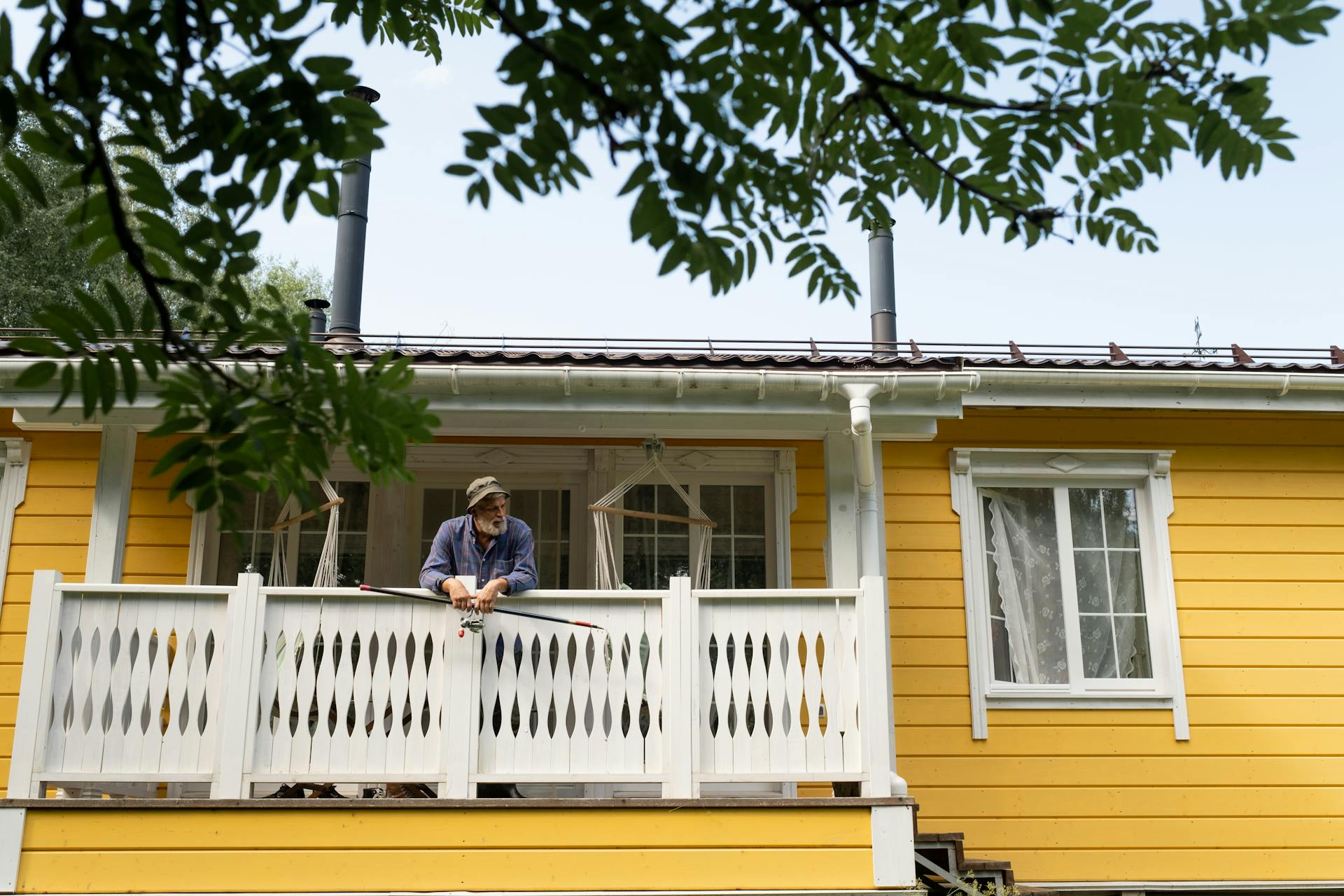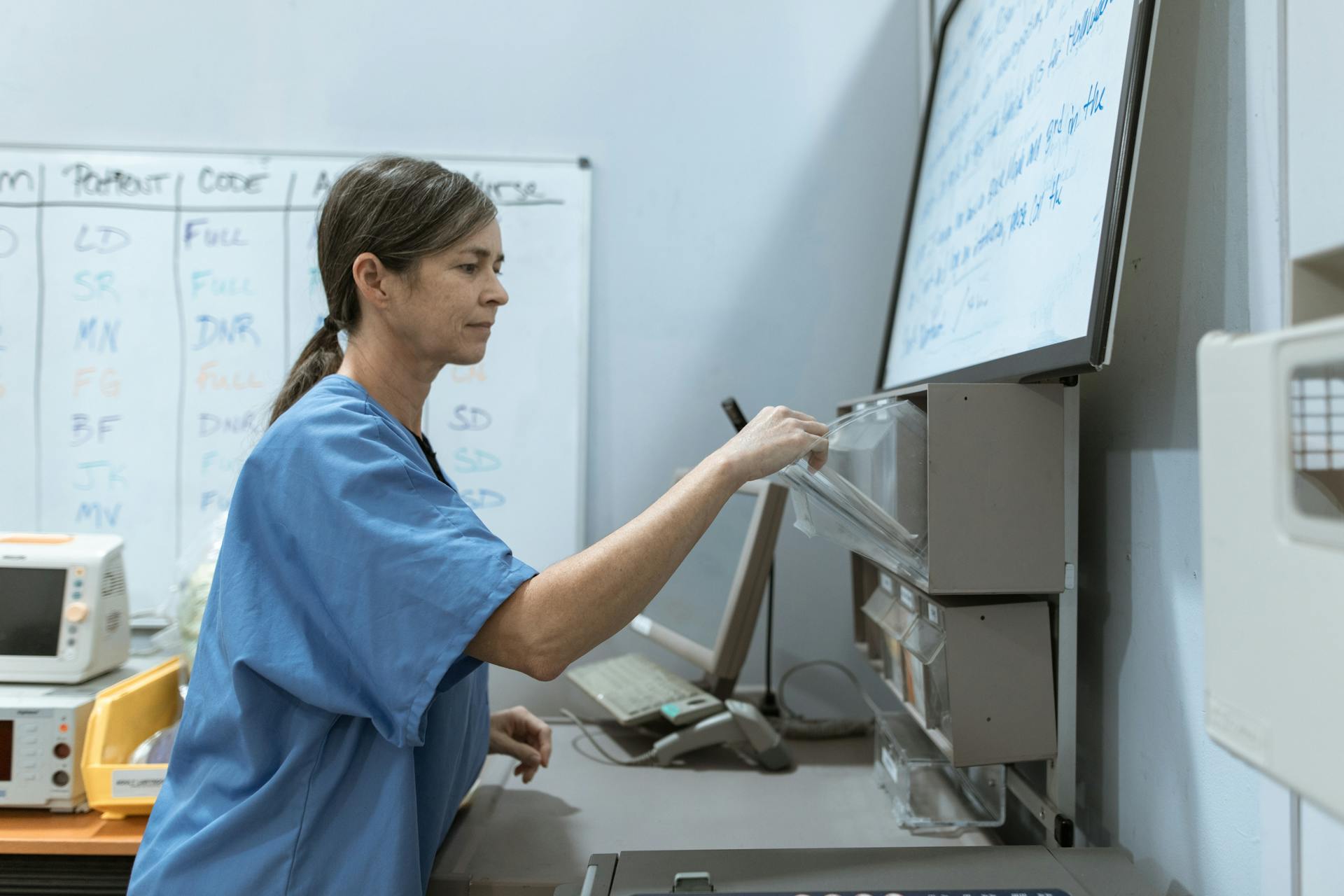
In Massachusetts, seniors can use their home equity to fund their retirement through a reverse mortgage.
The Federal Housing Administration (FHA) insures most reverse mortgages, including those in Massachusetts.
To qualify for a reverse mortgage in Massachusetts, borrowers typically need to be at least 62 years old and own their home outright or have a low balance on their mortgage.
The Massachusetts HECM loan limit is $822,375.
What Is a Reverse Mortgage?
A reverse mortgage is a financial product designed specifically for senior homeowners aged 62 and older.
It allows them to convert a portion of their home equity into cash without selling their property or making monthly mortgage payments.
The amount of money a homeowner can borrow through a reverse mortgage is determined by various factors, including the home’s value, the borrower’s age, and current interest rates.
Generally, the older the borrower, the more they can qualify for.
Unlike traditional mortgages, where homeowners make monthly payments to reduce their loan balances, reverse mortgages work oppositely.
The loan balance increases as the homeowner receives payments and interest accrues, which means that the equity in the home decreases as the loan balance grows.
Homeowners can access their home equity while still residing in the property, making it a beneficial option for seniors with limited income or those who wish to supplement their retirement funds.
It’s essential to note that homeowners remain responsible for paying property taxes and homeowners insurance and maintaining the property in good condition.
Requirements and Eligibility
To qualify for a reverse mortgage in Massachusetts, you'll need to meet certain requirements. At least one homeowner must be at least 62 years old.
You'll also need to live in the home as your primary residence, which means you must live there the majority of the year. Secondary homes do not qualify for a reverse mortgage loan.
To determine if you have enough equity, there isn't a specific amount or percentage required, but you'll need to have some equity built up in the home.
In addition to these requirements, the home itself must be in good, maintained condition, and you'll need to be able to continue to maintain it after receiving the reverse mortgage.
You'll also need to meet certain financial obligations, including being up to date on property taxes, homeowner's insurance, and any HOA fees, if required.
Here are some key requirements to keep in mind:
- Home age requirement: at least one homeowner must be at least 62 years old
- Residency requirement: live in the home as your primary residence
- Equity requirement: have some equity built up in the home
- Property condition: home must be in good, maintained condition
- Financial obligations: up to date on property taxes, homeowner's insurance, and HOA fees, if required
Requirements
To qualify for a reverse mortgage, you'll need to meet certain requirements. One of the most important requirements is that at least one homeowner must be at least 62 years old.
Homeowners must live in the home as their primary residence, which means they must live in the home the majority of the year. Secondary homes do not qualify for a reverse mortgage loan.
You'll also need to have some equity built up in the home, but there's no specific amount or percentage required. The home itself must be in good, maintained condition, and homeowners must be able to continue to maintain it after receiving the reverse mortgage.

Homeowners must also be able to meet certain financial obligations, including being up to date on property taxes, homeowner's insurance, and any HOA fees, if required. They need to be able to continue to cover these costs once they obtain the reverse mortgage loan.
Here are the key requirements for a reverse mortgage:
- Age requirement: at least one homeowner must be at least 62 years old.
- Residency requirement: homeowners must live in the home as their primary residence.
- Equity requirement: homeowners must have some equity built up in the home.
- Home condition: the home must be in good, maintained condition.
- Financial obligations: homeowners must be up to date on property taxes, homeowner's insurance, and any HOA fees.
- Home type: the property must meet FHA requirements, such as being a single-family home or an approved condominium.
Additionally, homeowners must attend a counseling session with a third-party HUD-approved counselor before applying for a reverse mortgage.
Homeowners
To be eligible for a reverse mortgage, homeowners must own their home outright or have a low balance on their mortgage. Homeowners in Massachusetts can access their home equity with a reverse mortgage, which can be a great option for those with lower-valued homes.
Many homes in Massachusetts have a median home value of $472,500. This falls below the federal reverse mortgage lending limit of $1,209,750, making reverse mortgages a more accessible option for homeowners in the state.
For homeowners with higher-value homes, jumbo reverse mortgage programs can offer greater borrowing potential beyond the federal limit. This can be a valuable option for those who want to tap into their home equity but exceed the standard reverse mortgage limit.
Types and Products
There are four major types of reverse mortgages that Massachusetts homeowners may qualify for. The most common type is the home equity conversion mortgage (HECM).
Choosing the right reverse mortgage product requires careful consideration of your financial goals and needs. This involves understanding the different types of reverse mortgages available and evaluating their pros and cons.
Types
In Massachusetts, there are several types of reverse mortgages available to homeowners. One of the most common types is the home equity conversion mortgage (HECM).
The HECM is a government-insured loan that allows homeowners to borrow money using the equity in their home. The HECM is a popular choice because it offers flexibility and protection for homeowners.
There are four major types of reverse mortgages that Massachusetts homeowners may qualify for.
HeCM for Purchase
A Home Equity Conversion Mortgage for Purchase, or HECM for Purchase, allows homeowners to use a reverse mortgage to partially finance their new home. This is a great option for older homeowners who want to upsize or downsize during their retirement years.
A HECM for Purchase combines a reverse mortgage with a substantial down payment from the sale of their previous home, eliminating the burden of monthly payments. This financial tool is federally backed, making it a reliable option for those who qualify.
By using a HECM for Purchase, homeowners can comfortably purchase a new home without the worry of monthly payments. This can be a huge relief, especially during retirement when income may be lower.
Benefits and Considerations
A reverse mortgage can be a good idea for some Massachusetts seniors, but it's essential to weigh the pros and cons carefully.
To get a reverse mortgage, you'll need to assess your current economic circumstances and determine if it's necessary to cover your retirement needs. If you have other sources of income or sufficient savings, a reverse mortgage might not be the best option.
One of the benefits of a reverse mortgage is that it can provide additional income and financial stability for older homeowners. This can be especially helpful if you're living on a fixed income or have high expenses.
However, the costs and risks associated with reverse mortgages can be significant. You'll need to understand the upfront and ongoing costs, including closing fees, interest rates, loan origination fees, and servicing fees. These expenses can impact the overall value of the loan.
Here are some key factors to consider when evaluating the costs and risks of a reverse mortgage:
- Closing fees
- Interest rates
- Loan origination fees
- Servicing fees
A reverse mortgage can also affect your home equity, which may impact your ability to leave an inheritance or have equity available for future needs. It's essential to consider the loan's impact on your home equity before making a decision.
Ultimately, the decision to obtain a reverse mortgage should be based on a comprehensive evaluation of your financial situation, long-term plans, and alternatives available.
Application and Process
The application process for a reverse mortgage in Massachusetts can take up to 45 days to complete, so it's best not to delay starting the process if you're seriously considering it.

You'll need to submit your application and required documentation, which typically includes a photo ID, homeowner's insurance policy, and property tax bill, to speed up the loan closure process.
One benefit of a reverse mortgage is that you have the option to cancel the application at any time, including within three business days after signing the closing loan documents.
Gathering all necessary documents at the right stage can help the process move along more smoothly.
Costs and Fees
Reverse mortgages can provide financial flexibility, but it's crucial to consider the associated costs. Interest rates and fees can accumulate over time, potentially reducing the equity in your home.
Origination fees, which cover the lender's charges for processing the loan application, can range from 0.5% to 2% of the loan amount. Closing costs, similar to traditional mortgages, can vary but typically range from 2% to 5% of the home's appraised value.
Mortgage insurance premiums are required for reverse mortgages, and borrowers must pay an initial premium at closing and ongoing annual premiums. Counseling fees, typically around $125, are charged by certified housing counseling agencies before obtaining the mortgage.

Here are some typical upfront costs and fees associated with reverse mortgages:
Interest charges, like any loan, accrue over time and can significantly impact the amount owed. Monthly servicing fees, charged by some lenders, cover the costs of managing the loan and sending account statements.
Borrowers are responsible for maintaining their homes and paying property taxes, homeowners insurance, and any applicable homeowners association fees.
Planning for Retirement
Planning for retirement requires careful consideration of your financial situation. It's essential to evaluate your income sources, expenses, and outstanding debts or loans to determine if a reverse mortgage is necessary to supplement your retirement income.
Understanding your current financial situation will help you make an informed decision. You should assess your income, expenses, and debts to see if a reverse mortgage is the right choice for you.
A reverse mortgage is a loan, so it's crucial to consider the long-term financial implications. You should carefully evaluate whether it aligns with your financial stability and peace of mind during retirement.
Consider your long-term goals and objectives for retirement. A reverse mortgage may contribute to your financial stability and peace of mind, but it's essential to determine if it aligns with your goals.
It's also important to consider the potential impact on your heirs. A reverse mortgage may affect their inheritance, so you should think about how the loan may impact their future.
Seeking guidance from a trusted financial advisor or mortgage professional specializing in reverse mortgages can be incredibly helpful. They can provide personalized advice based on your specific circumstances and help you navigate the complexities of reverse mortgages.
Consumer Financial Protection
When choosing a lender for a reverse mortgage in Massachusetts, it's essential to work with a reputable company that follows ethical practices and adheres to regulatory guidelines.
Researching lenders with a solid industry reputation is crucial to ensure you're getting a fair deal.
Lenders who follow ethical practices will be transparent about the terms and conditions of the loan, including the interest rates and fees.
You can check a lender's reputation by reading reviews from other customers and looking for certifications from industry organizations.
Consult Fin Advisor

Engaging a trusted financial advisor is a crucial step in determining if a reverse mortgage is right for you in Massachusetts. They can review your overall financial plan and assess the suitability of a reverse mortgage in your specific circumstances.
A financial advisor can help you understand the pros and cons of a reverse mortgage, including how it may impact your eligibility for other government benefits. They can also help you explore alternative options to a reverse mortgage.
Seeking the expertise of a financial advisor can provide peace of mind and ensure you make an informed decision about your financial future.
Lending and Selection
Choosing a reverse mortgage lender in Massachusetts can be a daunting task, but it's essential to do your research to ensure a smooth transaction. Consider the lender's experience, as some lenders have originated thousands of loans, such as Wells Fargo with 3,648 loans.
Reputation is also crucial, with lenders like MetLife Bank National Association and Bank of America having a strong presence in the industry. Customer reviews can also provide valuable insights, though they are not explicitly mentioned in the provided article sections.
To find the best possible terms and conditions, it's recommended to compare multiple lenders. You can refer to the table below for a comparison of some top lenders in Massachusetts:
Tips for Selecting a Lender
Choosing a lender is a crucial step in the lending process. Consider the lender's experience and reputation.
A lender with a strong reputation will provide a secure transaction. Compare multiple lenders to find the best possible terms and conditions.
Customer reviews can give you a good idea of a lender's customer service. Seek out reviews from multiple sources to get a well-rounded view.
Experience is key when it comes to navigating the lending process. Look for a lender with a proven track record of success.
Comparing multiple lenders will help you find the best fit for your needs. Don't be afraid to shop around and ask questions.
Talk to Loan Officer
Meeting with a reverse mortgage loan officer is the first step to getting started. They will evaluate your situation and give you an estimate of the benefits you could receive.
You can find a list of lenders in Massachusetts, but it's essential to talk to a loan officer to understand your options. The top 5 lenders in Massachusetts, based on the number of loans, are Wells Fargo, Everbank Reverse Mortgage LLC, Financial Freedom Senior Funding Corp, Reverse Mortgage Funding LLC, and Bank of America.
A loan officer will guide you through the process and answer any questions you may have. For example, you can expect a Mutual of Omaha Mortgage loan specialist to evaluate your situation and provide an estimate of the benefits you could receive.
Here's a list of some of the lenders mentioned in the article, along with the number of loans they have approved in Massachusetts:
Talking to a loan officer will help you understand the process and make an informed decision.
Find a Lender
Finding a lender can be a daunting task, but don't worry, I'm here to guide you through it. Consider the lender's experience, with some lenders having been in business for over 60 years, like Guild Mortgage Company.
A lender's reputation is also crucial, with some lenders having a 98.8% good review percentage, such as Atlantic Avenue Mortgage LLC. Look for lenders with a high number of customer reviews to get a sense of their reputation.
You should also consider the lender's customer service, with some lenders having a 5-star rating, such as GoodLife Home Loans. A good lender will have a responsive and helpful team to guide you through the process.
To make things easier, here's a list of the top 5 lenders in Massachusetts with a high number of loans:
By considering these factors and doing your research, you can find a lender that meets your needs and provides a smooth and secure transaction.
Top Cities
New York City is the top destination for international students, with over 40% of the city's population born outside the US. This diversity creates a unique opportunity for students to learn from people with different backgrounds and experiences.

The city's proximity to top universities like Columbia and NYU makes it an ideal location for students. With a wide range of academic programs and research opportunities, students can gain valuable skills and knowledge.
London is another top city for international students, with over 40% of its population speaking a language other than English at home. This linguistic diversity creates a rich cultural environment that students can immerse themselves in.
The city's strong economy and job market make it an attractive location for students looking to gain work experience. With many multinational companies based in London, students can build their professional network and gain valuable skills.
Tokyo is a top destination for students interested in business and finance, with many multinational corporations having a presence in the city. The city's unique blend of traditional and modern culture creates a fascinating environment for students to explore.
The city's strong economy and high standard of living make it an attractive location for students. With many opportunities for internships and job placements, students can gain valuable work experience and build their professional network.
Statutes & Regulations
In Massachusetts, reverse mortgages are governed by specific statutes and regulations. Massachusetts General Laws Chapter 167E § 7 sets the stage for reverse mortgage loans.
To be eligible, borrowers must meet certain requirements outlined in Chapter 167E § 7A. These requirements are crucial for ensuring that reverse mortgage loans are used responsibly.
Here are the key statutes and regulations governing reverse mortgages in Massachusetts:
- Massachusetts General Laws Chapter 167E § 7: Reverse Mortgage Loans
- Massachusetts General Laws Chapter 167E § 7A: Reverse Mortgage Loan Requirements
Latest Stats
In Massachusetts, there are over 933,400 homeowners aged 62 and above who may be eligible for a reverse mortgage.
The number of reverse mortgages closed in Massachusetts over the last 12 months is a relatively low 525.
There are currently 20 lenders operating in Massachusetts who offer reverse mortgage services.
The average home value in Massachusetts is a substantial $399,600.
Frequently Asked Questions
What is the downside to a reverse mortgage?
A reverse mortgage can reduce your home's value and limit future borrowing power, while also requiring high upfront fees. This can impact your financial flexibility and profit when selling your home.
What is the 60% rule in reverse mortgage?
The 60% Utilization Rule in reverse mortgages limits borrowers to taking the greater of 60% of their total available equity or 110% of their mandatory obligations in the first payout. This rule helps ensure borrowers don't over-borrow against their home's value.
What does Suze Orman say about reverse mortgages?
Suze Orman warns that reverse mortgages can be expensive due to various fees, including origination fees and closing costs. She advises caution when considering this financial option.
Sources
- https://mutualreverse.com/states/massachusetts-reverse-mortgage/
- https://reverse.mortgage/lenders/massachusetts
- https://licensing.reg.state.ma.us/public/oca-support/dob-consumer-moneymatters/app-dob-reverse-mortgages.asp
- https://reversemortgagealert.org/massachusetts/
- https://massrealestatenews.com/reverse-mortgage-good-idea/
Featured Images: pexels.com


